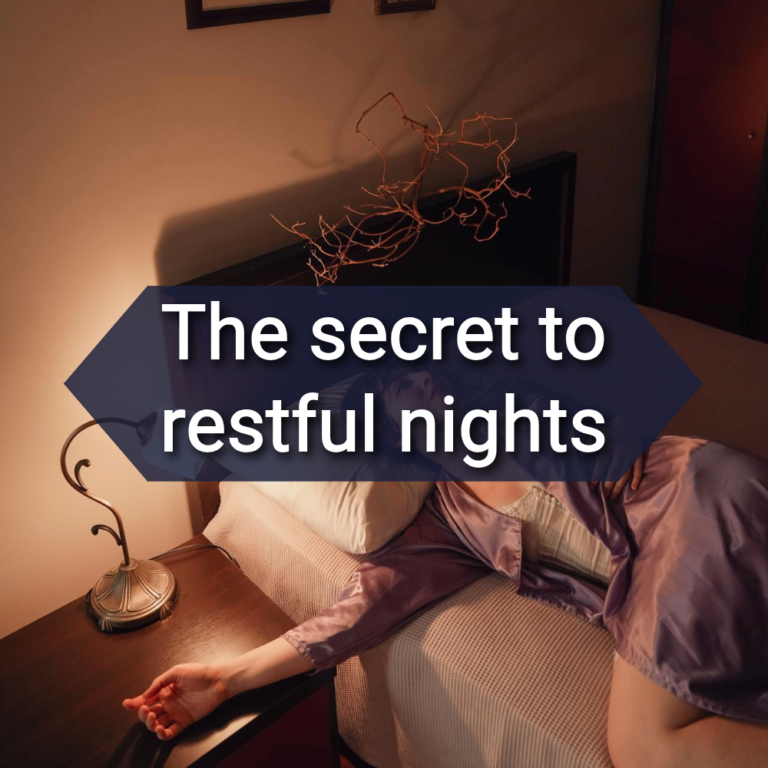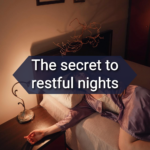Did you know that the average person spends about one-third of their life asleep? Yet, for many, those hours are far from restful. In our always-on, digital world, the quest for quality sleep has become more challenging – and more crucial – than ever before.
Enter sleep hygiene: the unsung hero in the battle for better rest.
This set of practices and habits holds the power to transform your nights and revolutionize your days. Whether you’re a chronic insomniac or simply looking to optimize your sleep, understanding and implementing good sleep hygiene could be the game-changer you’ve been seeking.
So, are you ready to unlock the secrets of truly restorative sleep?
Key Takeaways
- Sleep hygiene encompasses both your sleep environment and daily habits, working together to improve your rest quality.
- Consistency is key: maintaining regular sleep and wake times helps regulate your body’s internal clock.
- Your bedroom environment plays a crucial role in sleep quality – temperature, light, and comfort all matter.
- What you do during the day, from exercise to caffeine intake, can significantly impact your night’s rest.
- Good sleep hygiene isn’t just about nighttime – it’s a 24/7 commitment to better health and well-being.
What is sleep hygiene?
Sleep hygiene is a comprehensive approach to cultivating habits and creating environments that promote high-quality sleep. It’s not just about clean sheets or a tidy bedroom – though those can help. Instead, sleep hygiene encompasses a wide range of practices that touch every part of your day, from your morning coffee to your bedtime routine.
Think of it as a holistic toolkit for better sleep, addressing everything from your sleep schedule and pre-bed activities to your diet, exercise habits, and bedroom setup. By fine-tuning these elements, you’re essentially programming your body and mind to embrace sleep more readily and deeply.
Why does sleep hygiene matter?
You’ve likely heard that sleep is important, but do you know just how crucial it is? Sleep isn’t just a passive state of rest – it’s an active period where your body performs critical maintenance and your brain consolidates memories and processes information.
Studies have shown that chronic sleep deprivation is linked to a host of health issues, including:
- Increased risk of heart disease and stroke
- Higher likelihood of developing type 2 diabetes
- Weakened immune system
- Cognitive decline and increased risk of neurodegenerative diseases
- Mental health issues such as depression and anxiety
Pro tip: Think of sleep as your body’s nightly tune-up. Just as you wouldn’t drive your car for years without maintenance, you shouldn’t push your body without giving it proper rest.
Sleep hygiene: Your ticket to better health
By implementing good sleep hygiene practices, you’re not just improving your nights – you’re investing in your overall health and well-being. Quality sleep can enhance your mood, boost your productivity, improve your memory, and even help with weight management.
Consistent sleep hygiene can help regulate your body’s internal clock, known as your circadian rhythm. When this rhythm is in sync, you’re more likely to fall asleep easily, stay asleep through the night, and wake up feeling refreshed and ready to tackle the day.
The pillars of effective sleep hygiene
Crafting your ideal sleep schedule
One of the cornerstones of good sleep hygiene is maintaining a consistent sleep schedule. This means going to bed and waking up at roughly the same time every day – yes, even on weekends!
Why is this so important? Your body thrives on routine. By sticking to a regular schedule, you’re training your internal clock to expect sleep at certain times, making it easier to fall asleep and wake up naturally.
Pro tip: If you need to adjust your sleep schedule, do it gradually. Shift your bedtime by 15-30 minutes every few days until you reach your desired sleep time. This gentle approach is less likely to throw your body clock out of whack.
Designing your perfect pre-sleep ritual
What you do in the hour or two before bed can make or break your night’s sleep. A relaxing bedtime routine signals to your body that it’s time to wind down and prepare for rest.
Consider incorporating activities like:
- Reading a book (preferably not on a screen)
- Taking a warm bath or shower
- Practicing gentle yoga or stretching
- Listening to calming music or nature sounds
- Meditating or doing deep breathing exercises
The key is to find what works for you and stick with it. Consistency is crucial in training your body to recognize these activities as precursors to sleep.
Creating a sleep sanctuary
Your bedroom environment plays a bigger role in your sleep quality than you might think. To optimize your sleep space:
- Keep it cool: The ideal sleeping temperature is between 60-67°F (15-19°C).
- Embrace the dark: Use blackout curtains or an eye mask to block out light.
- Silence is golden: If your environment is noisy, consider using earplugs or a white noise machine.
- Invest in comfort: A supportive mattress and comfortable pillows can make a world of difference.
Remember, your bed should be for sleep and intimacy only. Working, watching TV, or scrolling through your phone in bed can create mental associations that make it harder to fall asleep.
Understanding the effects of light exposure
Light exposure plays a crucial role in regulating your sleep-wake cycle. Here’s how to harness its power:
- Seek morning light: Exposure to natural light early in the day helps set your internal clock.
- Dim the lights in the evening: As bedtime approaches, lower the lighting in your home to signal to your body that sleep is coming.
- Beware the blue light: The blue light emitted by screens can interfere with your body’s production of melatonin, the sleep hormone. Try to avoid screens for at least an hour before bed, or use blue light filtering apps or glasses.
Pro tip: If you live in an area with limited natural light, consider using a light therapy box in the morning to help regulate your circadian rhythm.
Lifestyle choices that impact sleep
What you do during the day can significantly affect your sleep at night. Key areas to focus on include:
- Exercise: Regular physical activity can improve sleep quality, but timing matters. Aim to finish vigorous workouts at least 3 hours before bedtime.
- Diet: Avoid large meals close to bedtime. If you’re hungry, opt for a light snack.
- Caffeine and alcohol: Both can interfere with sleep. Limit caffeine intake, especially in the afternoon, and be mindful of alcohol consumption, which can disrupt sleep patterns.
- Stress management: High stress levels can make it difficult to fall and stay asleep. Incorporate stress-reducing activities into your daily routine, such as meditation, journaling, or talking with a friend.
Sleep Hygiene FAQs
How long does it take to see results from improved sleep hygiene?
While some people may notice improvements within a few days, it typically takes 2-3 weeks for your body to fully adjust to new sleep habits. Consistency is key – stick with your new routine even if you don’t see immediate results.
Can naps be part of good sleep hygiene?
Short naps (20-30 minutes) can be beneficial for some people, but they may interfere with nighttime sleep for others. If you nap, do so early in the afternoon and keep it brief. If you’re having trouble sleeping at night, it’s best to avoid naps altogether.
Is it okay to use sleep aids as part of sleep hygiene?
While sleep aids may provide short-term relief, they’re not a long-term solution and aren’t considered part of good sleep hygiene. If you’re consistently struggling with sleep, it’s best to consult a healthcare professional to address underlying causes.
How can I maintain good sleep hygiene when traveling or working shifts?
Maintaining sleep hygiene can be challenging when your schedule is disrupted, but it’s not impossible. Try to stick to your usual sleep-wake times as much as possible, create a sleep-friendly environment wherever you are, and maintain your pre-sleep routine. For shift workers, consider using blackout curtains and white noise to create a sleep-promoting environment at any time of day.
Conclusion
Embracing good sleep hygiene is more than just a lifestyle choice – it’s an investment in your health, productivity, and overall quality of life. By implementing these practices consistently, you’re setting the stage for more restful nights and more vibrant days.
Remember, the journey to better sleep is just that – a journey. Be patient with yourself as you establish new habits, and don’t hesitate to seek professional help if sleep problems persist.
Your path to better sleep starts tonight. Are you ready to transform your rest and revolutionize your life?











